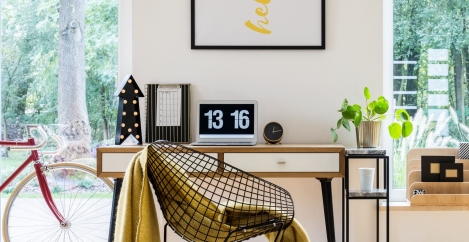June 15, 2022
Two thirds of SME staff ‘less likely’ to go off sick when working from home
 Two thirds of people working for small and medium sized businesses say they are are less likely to take sick leave when working from home and nearly half say they feel more pressure to justify their productivity when working remotely. The poll [registration] of around 1,300 people from Breathe suggests that the pressure people when working from home can lead to counterproductive forms of digital presenteeism.
Two thirds of people working for small and medium sized businesses say they are are less likely to take sick leave when working from home and nearly half say they feel more pressure to justify their productivity when working remotely. The poll [registration] of around 1,300 people from Breathe suggests that the pressure people when working from home can lead to counterproductive forms of digital presenteeism.
“As a business, your attitudes, behaviour, and beliefs will all ultimately present to people what you truly think about employee wellbeing,” says Lizzie Benton, Company Culture Coach & Founder at Liberty Mind. If people are feeling unseen and pressured to work through illness, that’s really not a good sign. Now is not the time to ignore your culture and the true ripple effect it has on your people. After two years of momentous life changes, employees across the UK are considering whether where they work is adding to their life or taking something away. That’s why it’s important to put your people first when making decisions that impact them both personally and professionally. Creating a positive healthy company culture is ongoing work and it’s a choice that will benefit your business in the long run.”
Key findings
Sick leave and the presenteeism problem
- 65 percent of workers say they are less likely to take sick leave when working from home
- Among those who felt unwell but didn’t take sick leave:
- 32 percent could not financially afford to take time off work
- 25 percent were too busy to do to take time off
- 21 percent didn’t want to let their colleagues down
- 20 percent felt pressured to work through it
- It could suggest there’s a severe lack of benefits in place to cater for employee wellbeing, as 72 percent of SMEs do not offer wellbeing days
- Despite over a third (35 percent) of workers reporting wellbeing days would be helpful
The increased pressure to be seen and heard
- Hybrid working methods are not alleviating stress levels for all employees, as a lack of direct visibility prompts 44 percent of workers to make themselves be ‘seen’ more when working from home
- Working from home increases pressures to be more productive and justify output (for 42 percent of workers)
- Almost half (47 percent) of SME workers said they would be less likely to take a lunch break while working at home, a small signal towards the blurred boundaries of remote working if left unclear by employers
Culture problems: workers feeling pressure to continue working despite feeling unwell
- One fifth (21 percent) of employees don’t want to let ‘colleagues down’ by calling in sick
- A quarter of workers (25 percent) reported they were ‘too busy’ to take a sick day
- 41 percent of workers said their symptoms weren’t bad enough to take sick leave
- More to be done to improve conditions – 36 percent of SME workers reported mental health issues in the past three months
- Taking matters into their own hands to ease the strain of this, an eighth (12 percent) of workers have taken sick leave for mental health reasons
Working from home works – but not for everyone
- Two thirds (67 percent) of SME workers say working from home improves their work-life balance
- However, 54 percent report they are still more likely to work longer hours than usual
- Almost half (48 percent) of SME employees are offered flexible working, but 27 percent are not offered it but would find it the most useful benefit













